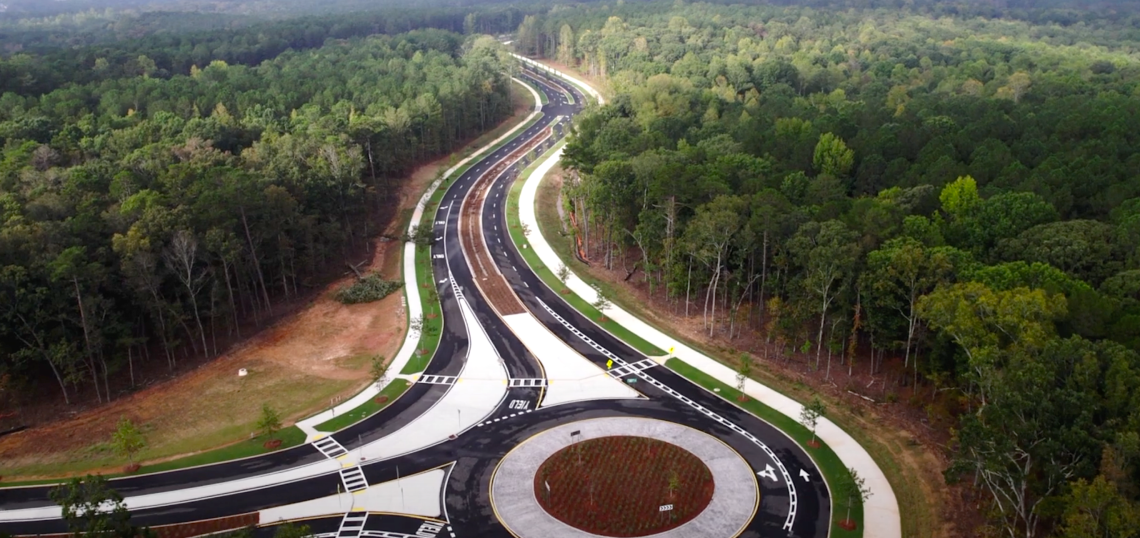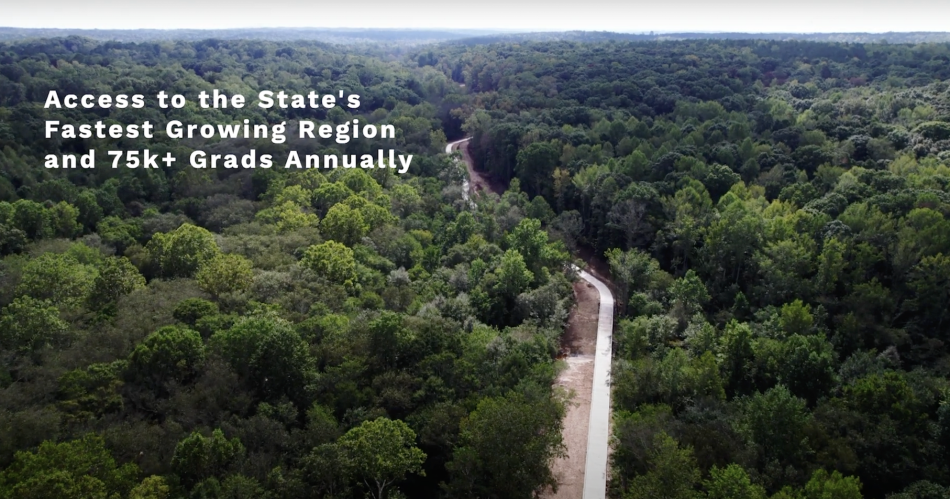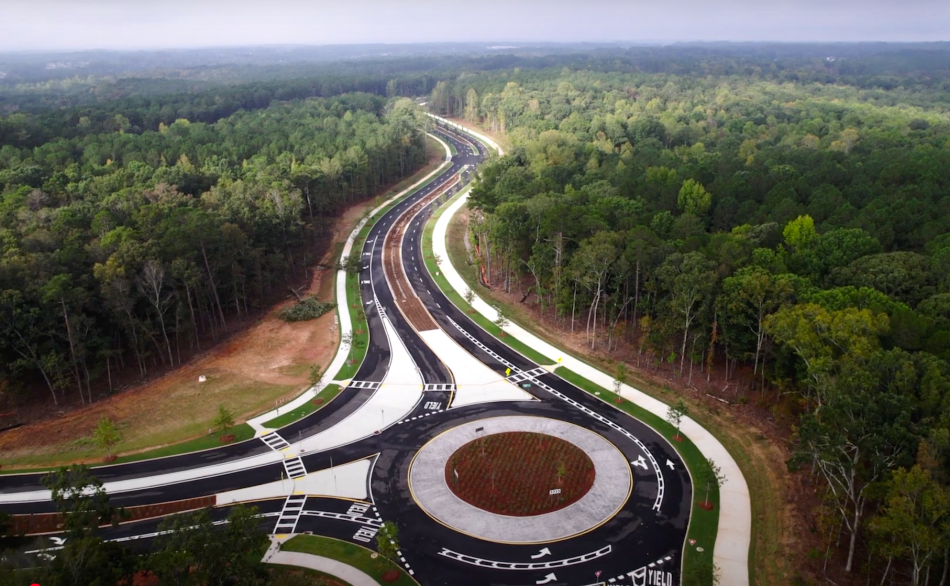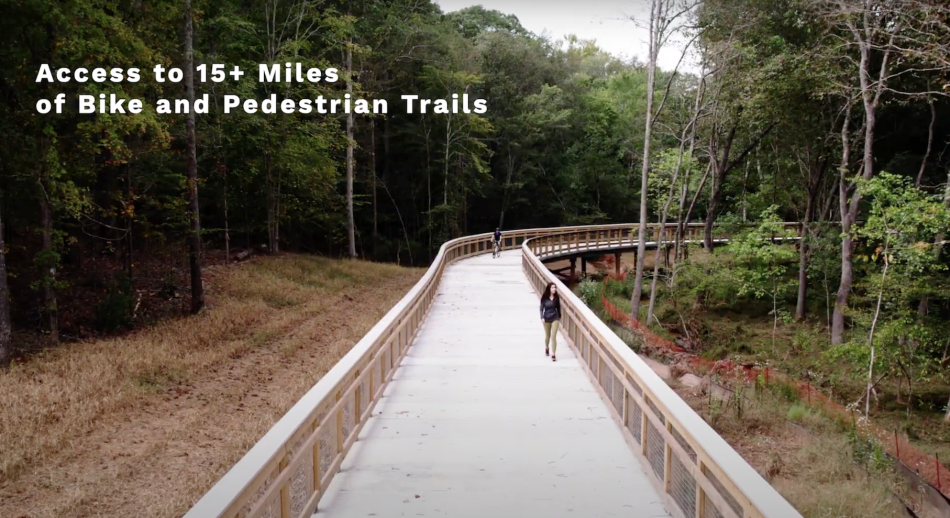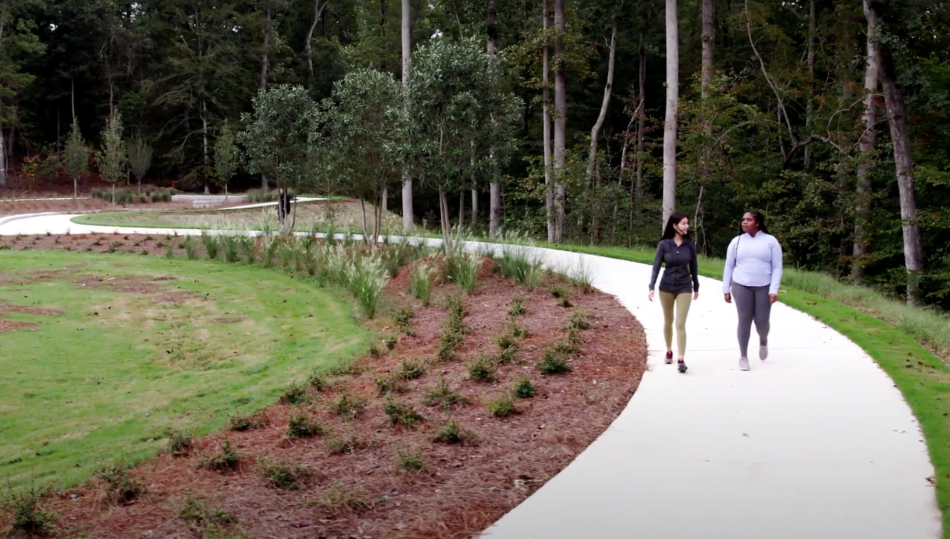Could it be the ultimate Peach State example of “If you build it, they will come”?
Rowen, a planned 2,000-acre mixed-use megaproject and “knowledge community” between Atlanta and Athens in Gwinnett County, has completed a $32-million infrastructure project described by officials as “complete streets” across former woodlands.
Considered phase one of Rowen’s buildout, the two miles of finished roadway, greenspaces, and several miles of multi-use pathways make the first 800 acres of the property accessible to the public, while putting the bones in place for planned development, so to speak. All utilities including power, water, sewer, fiber, and natural gas are in place for the section in question as well.
Rowen broke ground with much fanfare in December 2022, and the phase-one infrastructure work wrapped within about two years. Project leaders tell Urbanize Atlanta the infrastructure is designed to withstand the impacts of climate change—think: biofiltration methods instead of traditional curb-and-gutter systems, narrower traffic lanes to cut back on concrete usage and heat-island effects, and other measures—while prioritizing people-friendly over cars-centric layouts.
Situated 35 miles from Atlanta along Ga. Highway 316, Rowen’s site is capable of supporting 22 million square feet of development overall, equivalent to almost 17 Bank of America Plaza towers, Atlanta’s tallest building, per project leaders. The project’s atypical name alludes to “a second harvest.”
So what’s next?
Rowen leaders’ current focus is setting plans with partners “to track baseline environmental conditions, such as air and water quality, carbon sequestration, and land-use impacts, to measure [Rowen’s] environmental footprint as the community grows,” a project rep wrote to Urbanize Atlanta, in response to a request for development updates. “These insights will not only inform Rowen’s own sustainability efforts but could also serve as a model for other developments aiming to integrate climate resilience into their planning.”
The update was timely following the release last week of an economic analysis that identifies the 11-county region surrounding Rowen—what’s being coined the “Rowen Region”—as Georgia’s next hotspot for sheer growth and higher-education advancements.
The report, titled “The Rowen Region: Georgia’s Nexus for Economic Growth,” was compiled by the University of Georgia’s Carl Vinson Institute of Government. The region it’s referencing includes Banks, Barrow, Clarke, DeKalb, Forsyth, Fulton, Gwinnett, Hall, Jackson, Oconee, and Walton counties, where the metropolitan statistical areas of Atlanta, Athens, and Gainesville meet.
The area is home to more than 50 research and educational institutions today, per Rowen leadership.
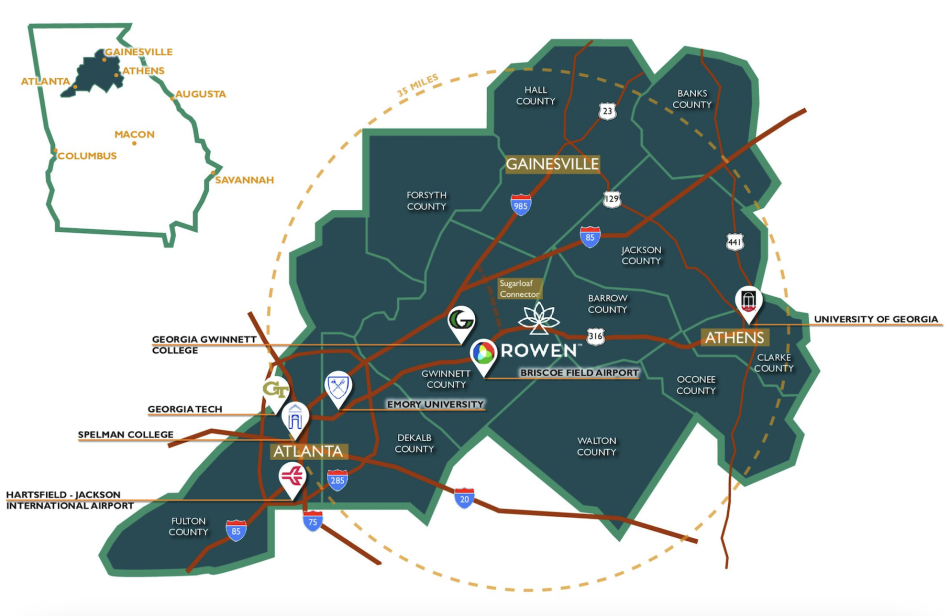 Overview of the "Rowen Region," which project backers call "one of America’s most vibrant and multicultural communities." Rowen Foundation
Overview of the "Rowen Region," which project backers call "one of America’s most vibrant and multicultural communities." Rowen Foundation
Some key findings in the UGA report, according to researchers:
• The Rowen Region’s population by 2050 is forecasted to grow by more than 1 million residents, accounting for 43 percent of Georgia's population increase in that timeframe;
• Almost half of Georgia’s projected prime working-age—age 25 to 64—population growth between 2023 and 2028 will occur within the Rowen Region;
• The region’s labor force is already highly educated; nearly 70 percent of the population has some post-secondary education today;
• Technology, healthcare, and engineering are among the largest and fastest-growing employment sectors in the region, per the study.
At more than 10 times the size of Piedmont Park, Rowen is envisioned as a mix of lab, office, and civic spaces, alongside a mix of multifamily buildings, cafes, start-up hubs, parks, and public trails. Project heads have previously told Urbanize the “gamechanger” concept will likely be a multi-decade buildout—up to 40 or 50 years, given the scope—but could come quicker, depending on market demand.
Rowen’s board of directors, which governs the Rowen Foundation, is made up of leaders from the University of Georgia, Georgia Tech, Emory University, Georgia Gwinnett College, and others who are advancing the project for its economic and jobs-creation potential.
The Rowen Foundation says the project could ultimately produce 100,000 jobs across Georgia and contribute between $8 and $10 billion annually to the state’s economy.
In terms of actual development, the goal is to build dense housing in a village-like setting first, alongside retail, lab, and office spaces, to bring together researchers, entrepreneurs, and other innovators amidst a preserved, bucolic setting. No timeline for construction has been specified.
Head to the gallery above for a closer look at where Rowen stands today—and where it could be heading.
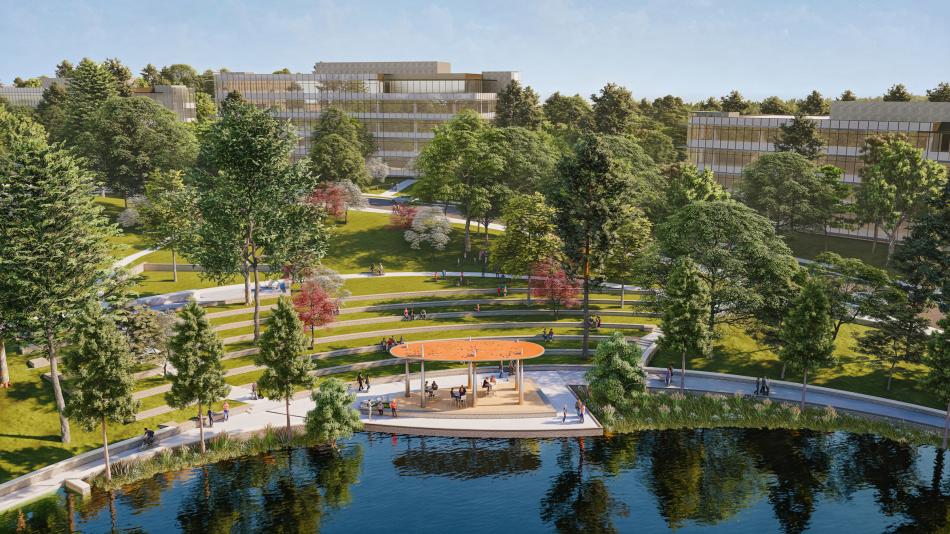 The Medium Density area with a planned water feature and acres of greenspaces designed to boost privacy. Courtesy of The Rowen Foundation
The Medium Density area with a planned water feature and acres of greenspaces designed to boost privacy. Courtesy of The Rowen Foundation
...
Follow us on social media:
Twitter / Facebook/and now: Instagram
• Gwinnett County news, discussion (Urbanize Atlanta)




